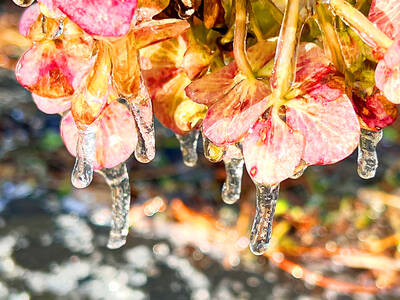Academics and researchers have accused the government of a deliberate attempt to deny the existence of Taiwan’s lowland Pingpu Aborigines (平埔族群) in its school curriculum revision and to “exterminate” them from the nation’s history.
Wu Chun-ying (吳俊瑩), a teacher and a doctoral student at National Taiwan University’s Department of History, said on Tuesday: “The Ministry of Education essentially took out any mention of the history and culture of lowland Pingpu Aborigine groups. This is the government’s tactic to exterminate them.”
He said that the new curriculum adjustment utilizes the term yuan zhu minzu (原住民族) — which denotes “Aboriginal groups or indigenous peoples” — to replace the term yuan zhu min (原住民), which in the past was more inclusive and denoted collective groups of Aborigines.

File photo: Hua Meng-ching, Taipei Times
The Ministry of Education has said the change is to conform to the terms of the Aboriginal Basic Act (原住民族基本法).
However, Wu said the government recognizes only 14 Aboriginal groups, which were mostly referred to in the past as “highland Aborigines” (高山族), denying recognition to the 10 lowland Pingpu Aborigine groups.
The 10 lowland Pingpu Aborigine groups are the Babuza, Hoanya, Ketagalan, Kaxabu, Makatao, Pazeh, Papora, Siraya, Taokoas and Tavorlong. They belong to the same Austronesian ethno-cultural family as the “highland Aborigines,” and are indigenous inhabitants of Taiwan. Their rights as indigenous people are recognized by the international community and protected in various conventions, such as the UN Declaration on the Rights of Indigenous Peoples.
“The committee members [for the curriculum adjustment] do not have a comprehensive overview of Taiwanese history. They only want to revise the texts to suit the government’s definitions of the Constitution,” Wu said.
Professor Hsueh Hua-yuan (薛化元) concurred, saying the committee members have neglected the difference between the two terms, which are contradictory, in the exclusion of lowland Pingpu groups.
Wen Chen-hua (溫振華), professor of Taiwanese history at Chang Jung Christian University in Greater Tainan, said that the Ministry of Education is applying a strict legal definition of yuan zhu minzu to replace the more inclusive term of yuan zhu min.
“It gives an incomplete picture of Taiwan’s history, and the change is inappropriate,” Wen added.
Hsiao Po-jen (蕭博仁), interim director of the Greater Tainan Government’s Ethnic Affairs Committee, said his agency has strived to gain official status for Tainan’s Siraya people for many years, but have always been refused by the central government’s Council of Indigenous Peoples.
“Now we see these changes, it contradicts the council’s stance. On the one hand, they deny the existence of lowland Pingpu groups, but on the other hand, some textbooks introduce the ‘Sinkang Manuscript’ [the Dutch translation of land leases in the Siraya language, dating from the 17th century], and mention other Taiwanese Austronesian Aborigine groups outside of the current legal definition,” Hsiao said.
“The curriculum change and its process are ludicrous,” Hsiao added.

National Kaohsiung University of Science and Technology (NKUST) yesterday promised it would increase oversight of use of Chinese in course materials, following a social media outcry over instances of simplified Chinese characters being used, including in a final exam. People on Threads wrote that simplified Chinese characters were used on a final exam and in a textbook for a translation course at the university, while the business card of a professor bore the words: “Taiwan Province, China.” Photographs of the exam, the textbook and the business card were posted with the comments. NKUST said that other members of the faculty did not see

The Taipei City Government yesterday said contractors organizing its New Year’s Eve celebrations would be held responsible after a jumbo screen played a Beijing-ran television channel near the event’s end. An image showing China Central Television (CCTV) Channel 3 being displayed was posted on the social media platform Threads, sparking an outcry on the Internet over Beijing’s alleged political infiltration of the municipal government. A Taipei Department of Information and Tourism spokesman said event workers had made a “grave mistake” and that the Television Broadcasts Satellite (TVBS) group had the contract to operate the screens. The city would apply contractual penalties on TVBS

A new board game set against the backdrop of armed conflict around Taiwan is to be released next month, amid renewed threats from Beijing, inviting players to participate in an imaginary Chinese invasion 20 years from now. China has ramped up military activity close to Taiwan in the past few years, including massing naval forces around the nation. The game, titled 2045, tasks players with navigating the troubles of war using colorful action cards and role-playing as characters involved in operations 10 days before a fictional Chinese invasion of Taiwan. That includes members of the armed forces, Chinese sleeper agents and pro-China politicians

The lowest temperature in a low-lying area recorded early yesterday morning was in Miaoli County’s Gongguan Township (公館), at 6.8°C, due to a strong cold air mass and the effect of radiative cooling, the Central Weather Administration (CWA) said. In other areas, Chiayi’s East District (東區) recorded a low of 8.2°C and Yunlin County’s Huwei Township (虎尾) recorded 8.5°C, CWA data showed. The cold air mass was at its strongest from Saturday night to the early hours of yesterday. It brought temperatures down to 9°C to 11°C in areas across the nation and the outlying Kinmen and Lienchiang (Matsu) counties,